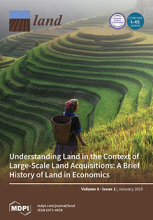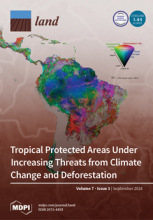Land Library
Welcome to the Land Portal Library. Explore our vast collection of open-access resources (over 74,000) including reports, journal articles, research papers, peer-reviewed publications, legal documents, videos and much more.
/ library resources
Showing items 10 through 18 of 23.A new urbanization and rural revitalization strategy has been implemented in China over a number of years, under which farmers’ land contract rights (LCRs) flow inevitably through various means.
Our purpose is to present and test a typology of land reform theories as a means of understanding and interrogating the motives behind land reform and to better equip land administrators and policymakers to enact land reform programs that are appropriate for their contexts.
The use of land consolidation on customary lands has been limited, though land fragmentation persists. Land fragmentation on customary lands has two main causes—the nature of the customary land tenure system, and the somewhat linked agricultural system.
Ethiopia has implemented one of the world’s most cost-effective systems to document land holdings, the land certification system. After more than 15 years since its launch, questions have been raised regarding its functionality.
We examine collaborations between the state and civil society in the context of land grabbing in Argentina. Land grabbing provokes many governance challenges, which generate new social arrangements.
The expansion of oil palm plantations in Papua province, Indonesia, involves the conversion of forests, among other land types in the landscapes, which are a source of clan members’ livelihoods.
Most literature on land tenure in sub-Saharan Africa has presented women as a homogenous group. This study uses evidence from Ghana, Nigeria, and Zimbabwe to show that women have differentiated problems, needs, and statuses in their quest for land access and tenure security.
In economics, land has been traditionally assumed to be a fixed production factor, both in terms of quantity supplied and mobility, as opposed to capital and labor, which are usually considered to be mobile factors, at least to some extent.
There exist various indicators that measure land tenure security for urbanites. Most of those indicators measure the degree to which land titling promotes the security of tenure. Based on the reviewed literature, it is admitted that land titling is not a panacea to land tenure security.








